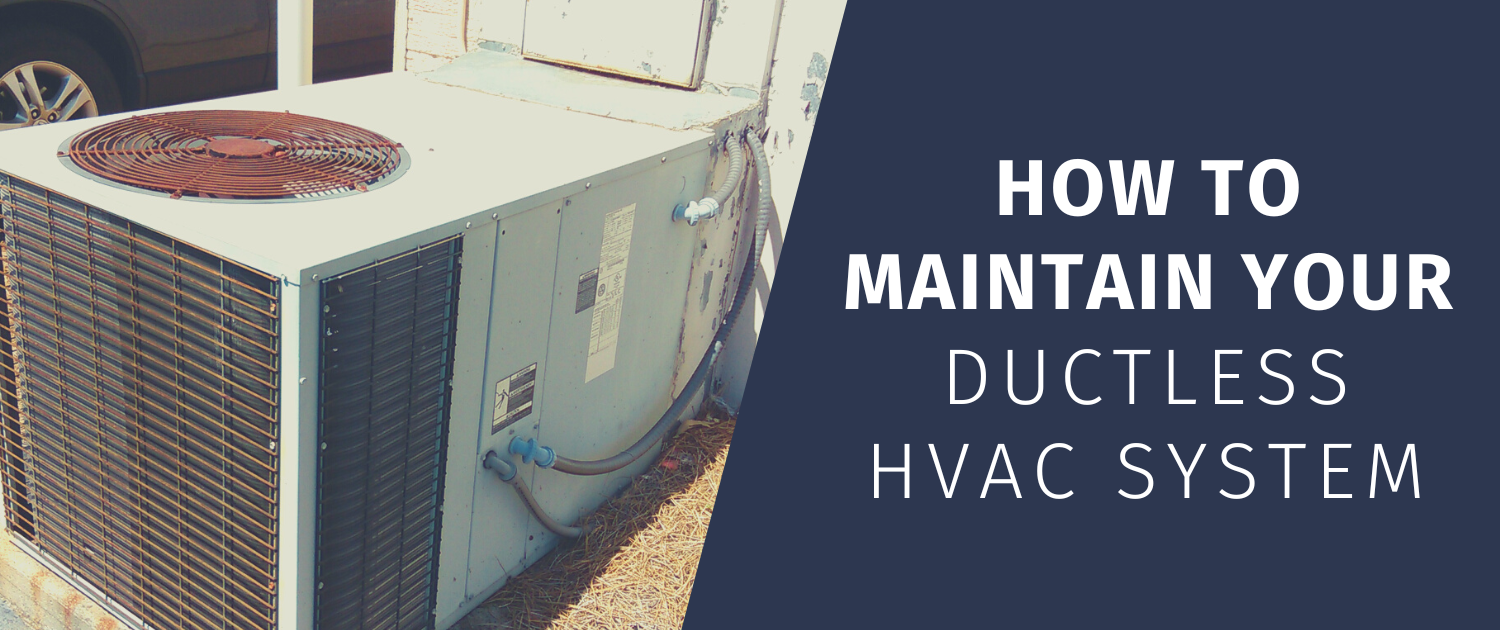Ductless HVAC systems, also known as mini-split systems, are a popular choice for heating and cooling both homes and businesses. Ductless systems are able maintain a comfortable temperature from room to room without the need for ductwork. They are available with the option of single or multi-zones. Multi-zone systems provide the ability to control the temperature of a specific room or zone, ensuring maximum comfort. But like any mechanical system, ductless HVAC systems can occasionally experience problems.
Potential Problems with Ductless Systems:
Here are some common causes of problems with ductless HVAC systems:
- Dirty Filters: A dirty air filter can restrict airflow and cause the system to work harder than necessary, leading to decreased efficiency and performance.
- Refrigerant Leaks: Leaks in the refrigerant lines can cause the system to lose refrigerant, leading to poor cooling or heating performance.
- Sensor Issues: Sensors in the indoor and outdoor units of a ductless HVAC system help regulate the temperature and prevent overheating or freezing. If the sensors are not working correctly, the system may not function properly.
- Electrical Problems: Faulty wiring, faulty electrical components and power outages can cause a ductless HVAC system to malfunction or not turn on at all.
- Drainage Issues: A clogged condensate drain line can cause water to back up and damage the system.
- Improper Installation: If the ductless HVAC system was not installed correctly, it can cause problems with performance and efficiency.
What You Can Do to Help Maintain Your Ductless System
Like any other HVAC system, regular maintenance is required to ensure optimal performance and longevity. Here are some of the best ways you can maintain your ductless HVAC system:
- Clean the filters: One of the most important steps in maintaining your ductless HVAC system is to clean or replace the air filters. These filters can become clogged with dirt and debris, which can restrict airflow and decrease the system’s efficiency and ability to circulate air. Clean the filters at least once a month or as recommended by the manufacturer.
- Inspect the outdoor unit: The outdoor unit of your ductless HVAC system can accumulate dirt, leaves, and other debris. This can obstruct airflow and reduce the system’s efficiency. Inspect the outdoor unit regularly and remove any debris that may have accumulated. Just be sure to turn off your unit and make sure the unit is cool before attempting to clean.
- Check the refrigerant levels: Refrigerant is essential for the proper functioning of your ductless HVAC system. Low refrigerant levels can cause the system to work harder, increasing energy costs and reducing the system’s lifespan. Have a professional inspect and recharge the refrigerant levels as needed.
- Clean the condenser coils: Clean coils are prone to accumulating dirt, dust and mold. The coils can be cleaned easily using a hose or cloth. You can also use a coil cleaner kit. Be careful that the fins don’t bend or warp. And make sure the unit is completely dried out before switching it back on.
- Monitor the drain lines: These plastic lines remove condensation from each indoor unit to the outside or other drain. If mold and mildew are allowed to build up, the drain lines may develop clogs that can potentially back up and the condensation water causing it to leak from the indoor unit and make a mess inside. If these drain lines aren’t flowing normally, it’s best to call a professional.
- Keep the indoor unit clean: Dust and dirt can build up on the indoor unit as well, which can reduce the system’s efficiency and cause malfunctions. Monitor the dust levels in a room and regularly wipe the unit’s exterior with a damp cloth to remove dust to ensure optimal performance. Make sure the vents don’t become clogged by using a static dusting cloth to remove debris.
- Adding a line voltage monitor with surge arrestor: HVAC systems are susceptible to damage from power surges, just like any other electronic appliance. Installing a line voltage monitor that operates as a surge protector is an excellent choice if you want your ductless HVAC system to run as long as possible without breaking down due to over and under voltage, rapid short cycling due to transients, and high-power surges.
- Schedule regular maintenance with an HVAC professional: Annual maintenance by a professional technician is recommended for your ductless HVAC system. This will help identify and address any potential issues before they become significant problems and ensure that the system operates efficiently and reliably.
In conclusion, maintaining your ductless HVAC system is crucial to ensuring it operates efficiently and provides optimal comfort in your home or business. Regular cleaning, inspection, and professional maintenance can help prolong the system’s lifespan, reduce energy costs, and prevent potential malfunctions. By following these maintenance tips, you can ensure that your ductless HVAC system runs smoothly for many years to come.








 ICM Controls
ICM Controls